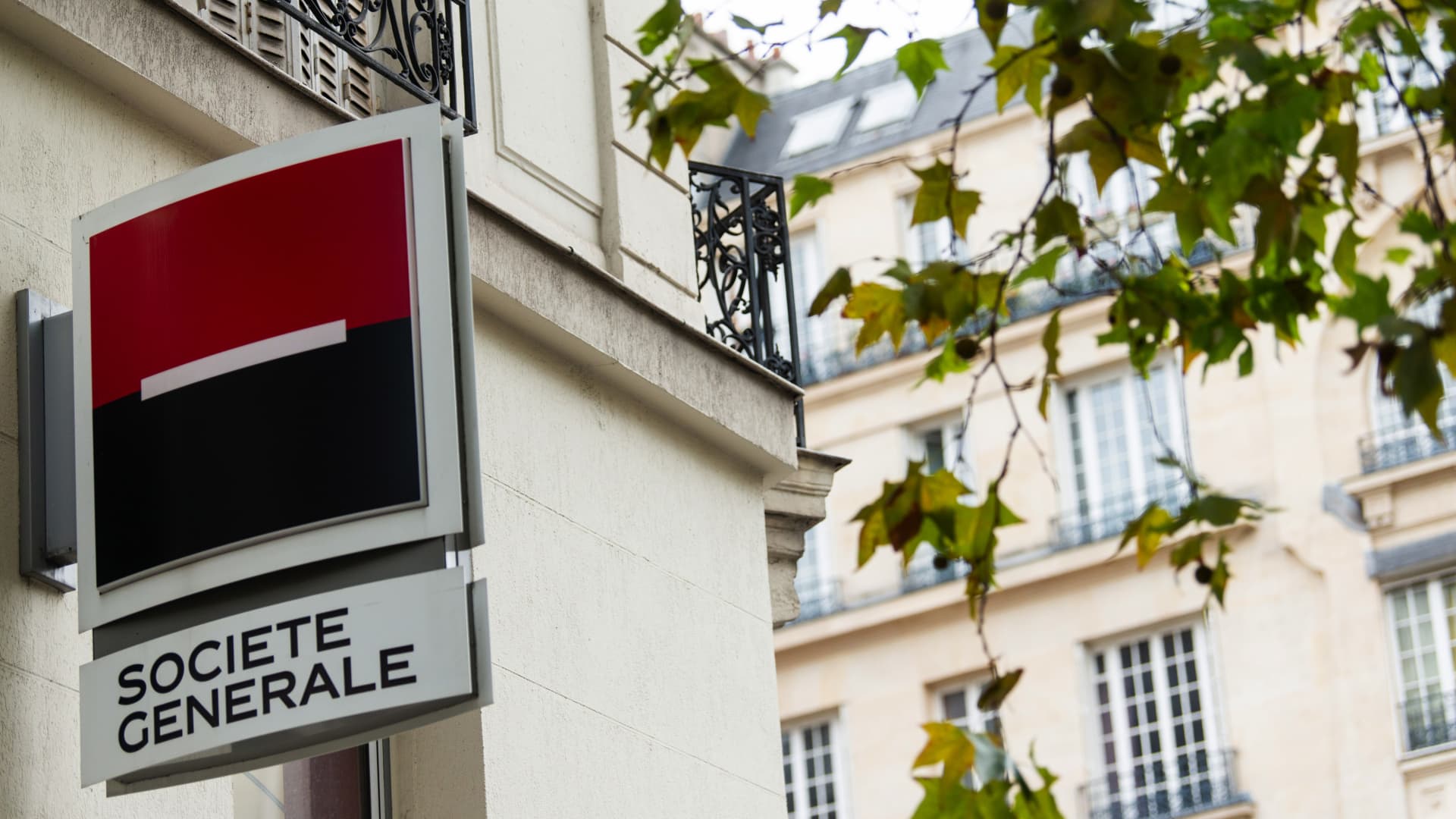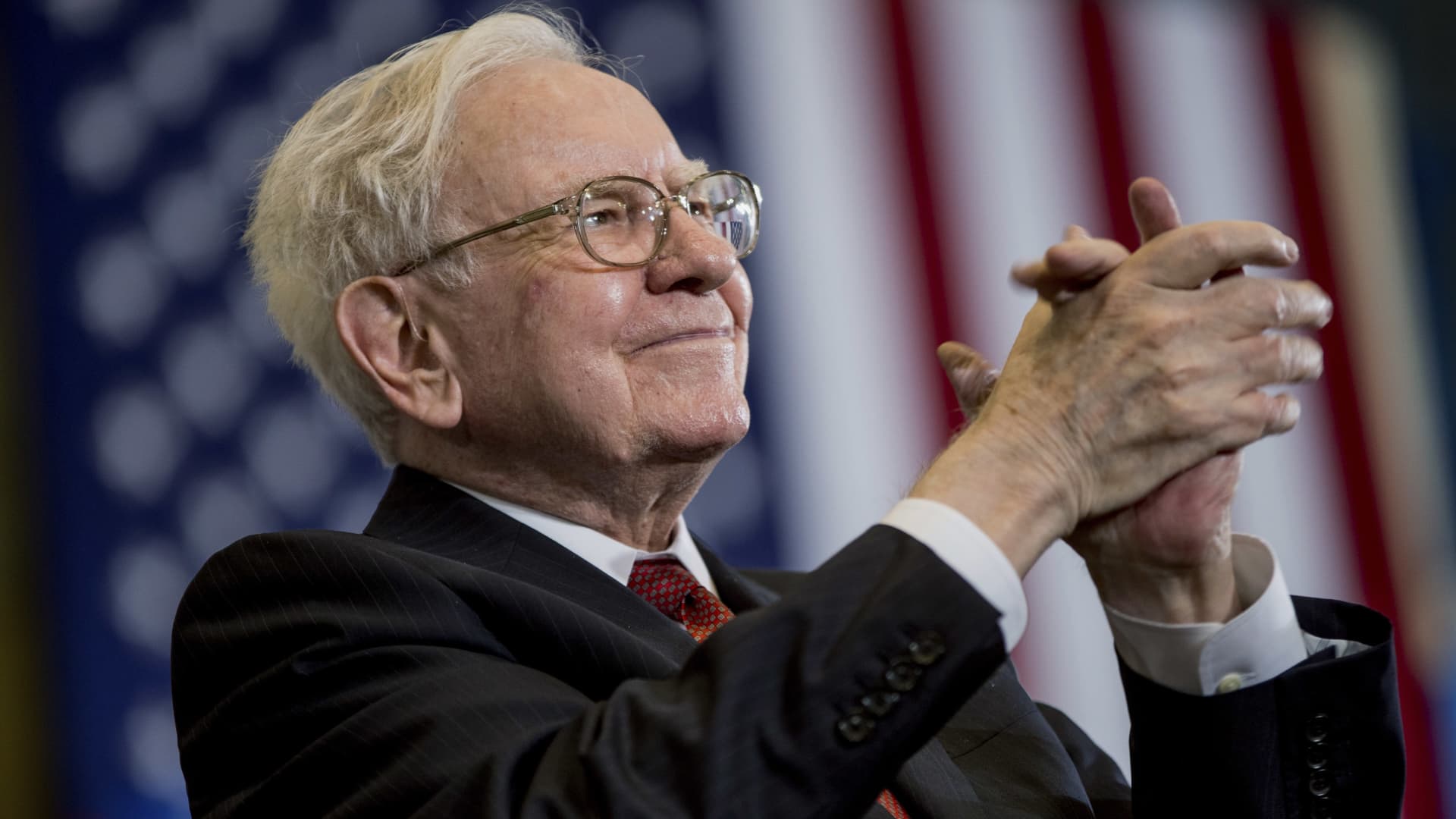David Aberson, 86, left, and his wife Dori, 75, make their way with others in the by appointment only line to get vaccine shots to protect against the coronavirus at the Balboa Sports Complex in Encino. Dori Aberson said that they were not able to get appointments for both of them on the same day and that she has to come back the next day to get her vaccine shot.
Mel Melcon | Los Angeles Times | Getty Images
Amy Sullivan wakes up at 2:30 a.m., turns on two phones and two computers and pulls up the website for Publix, a supermarket chain with stores thousands of miles away from her home in Los Angeles.
The grocer has been one of the only companies in the U.S. to offer a limited supply of Covid-19 vaccines to people age 65 and over in Florida, Georgia and South Carolina, but getting an appointment can be frustratingly difficult. They can’t be made over the phone or by just showing up, and the slots typically fill up almost as soon as they’re posted online.
Sullivan, a 30-year-old writer and comedian, has unintentionally built a list of more than a dozen Floridians who need help securing an appointment. It started when she helped her parents, aunts and uncles get their shots, which quickly progressed to their elderly neighbors and even her mother’s boss at the local library.
Harder than Coachella tickets
“We used to wait for Coachella tickets, and you get in the queue and you have multiple devices,” Sullivan said. “I would argue that’s easier than getting a Covid vaccine.”
Older Americans across the country who are now eligible to get vaccinated against Covid-19 have been waking up before dawn and logging into their computers trying to secure an appointment to get the life-saving shots. Those who aren’t as tech savvy have recruited the help of younger family members or friends who can quickly maneuver through the registration process before all of the spots are taken.
While the nation’s vaccine rollout has been sluggish to start, the outgoing Trump administration advised states to expand the group of people eligible for the jab from health-care workers and first responders to everyone 65 and older, as well as those with underlying health conditions, to ensure the shots that were available didn’t go to waste. According to the Kaiser Family Foundation, at least 35 states now include people 65 and older in their top 1a and 1b priority groups.
Doses still limited
However, the amount of doses from Pfizer and Moderna — the only two companies to receive emergency approval in the U.S. so far — are still limited, which has triggered demand that has far outpaced supply. Just about 50 million doses of the two-shot vaccines have been distributed to the states so far and roughly 32 million of those have been administered, according to the CDC.
Many states quickly adopted the new recommendations from the Trump administration thinking they’d receive a surge in supply, state officials have said. Outgoing Health and Human Services Secretary Alex Azar pledged to release a reserve of doses that were meant to guarantee second shots of the two-dose vaccine regimens. But when the time came, no such reserve existed in substantial supply. Some states said their allotments were actually cut, forcing them to delay or cancel appointments.
“Clearly, the states that were more aggressive about expanding to over 65, or even people with medical conditions, they’re the ones who are over promised right now,” said Marcus Plescia, chief medical officer at the Association of State and Territorial Health Officials.
In Florida, where roughly 27,000 people have died from the virus, there are more than 300 Publix stores that are administering vaccines to residents. Florida Gov. Ron DeSantis had broken from the Centers for Disease Control and Prevention’s recommendations early on and opened the state’s eligibility to the more than 4 million people age 65 and older in December. So far, the state has vaccinated over 1 million people in that group.
“I wanted to throw my computer out the window. It was so extremely frustrating,” said Jane Heller, a 70-year-old author and screenwriter based in Florida.
Heller said it took her three and a half weeks to finally get an appointment in her home county of Pinellas, though she was willing — and tried — to drive to other distribution sites up to four hours away.
It was especially frustrating to hear reports of “vaccine tourism,” where people from far-away places like New York traveled to Florida to take advantage of their open eligibility, she said. While Florida health officials have disavowed the notion that medical tourism is happening on a large scale, they’ve since advised practitioners to verify whether a person is a permanent or seasonal resident before administering the jab.
“They were using up my spot, and I was very resentful,” Heller said.
‘All I did was cry’
The problem isn’t isolated to Florida. Cathy Pagano, a Queen’s resident in New York City, said she also had a difficult time signing up for a dose when New York expanded eligibility to people 65 and older in January. Pagano’s brother and another family friend stayed up until 1 a.m. trying to find an appointment online after she grew “hysterical,” she said.
“All I did was cry,” Pagano said. “People are getting pains in their chest and stressing out. When you’re older, that could give you a heart attack because fear and continuously being on the computer just getting negativity. It’s just really, really too much for an older person.”
Angela Abruzzino, of Buffalo County, New York, said she’s been trying for days to book Covid-19 vaccination appointments for her mom, 81, and dad, 83. She, her nephew and his girlfriend spent last week constantly refreshing websites, calling pharmacies and even driving around to nearby hospitals, pharmacies and fire halls in search of available appointments.
Full-time effort
The process, she said, has been a full-time effort and it’s so far been fruitless. She booked appointments for both her parents last week, but they were canceled after the state announced it didn’t have enough supply.
So now, Abruzzino is back at it, making calls, refreshing sign-up links and hitting the road following the word of mouth in pursuit of two more appointments.
“My parents would not have been able to do it on their own,” Abruzzino said in a phone interview. “What about all the people out there, the elderly people out there, or the people who are sick, that don’t have anybody that can help them take a family member that can help them?”
Some local officials have turned to the private sector to help enable the vaccine rollout.
Miami-Dade County, Florida’s most populous county with the highest number of Covid-19 infections, has partnered with start-up Nomi Health to help sign people up for appointments after the county’s site crashed earlier this month when it started offering vaccine appointments.
Websites overloaded
Josh Walker, co-founder and COO of Nomi, said that local health departments websites were not built to handle the kind of traffic they’re seeing now. When Miami-Dade started with the vaccine rollout, they saw hundreds of thousands of people simultaneously on the site trying to book appointments, he said.
The company has worked with the county on a new site that can handle massive numbers of people logging on at the same time. It also offers more support, such as other languages and a chat service. Walker said that Nomi’s working with Miami-Dade to offer more outreach services, like at-home vaccine delivery for homebound people.
Non-profits like New Jersey-based Sostento, which provides support to frontline health-care workers, are also trying to help.
Joe Agoada, CEO of Sostento, noted that many counties, pharmacies and health clinics are relying on websites to set up appointments for the public. Some health clinics arranged call centers instead, but it was overwhelming to operate vaccine clinics while answering phones and treating patients, Agoada added.
Charitable help
That led Sostento to partner with dozens of clinics across the country to provide support by serving as a call center for patients who had questions about the vaccines or wanted to set up an appointment.
One clinic Sostento partnered with is the Good Samaritan Health Center in Atlanta, Georgia. Breanna Lathrop, chief operating officer of the clinic, said she’d heard frustration from people in the community surrounding Good Samaritan, who said they didn’t trust the online sign-up link in the county and couldn’t get a call through.
The clinic is located in West Atlanta and serves a mostly Hispanic community, which has been hit hard by the pandemic, Lathrop said. Many people who call, she said, aren’t sure about the vaccine and just want to talk it through with a health-care professional they trust. Others might not schedule an appointment if there are too many barriers to doing so, she said.
“There’s so much conversation right now about just how fast can we get it out that I worry that that will override conversations about how do we equitably distribute it as well,” Lathrop said. “Both are legitimate needs and concerns.”







